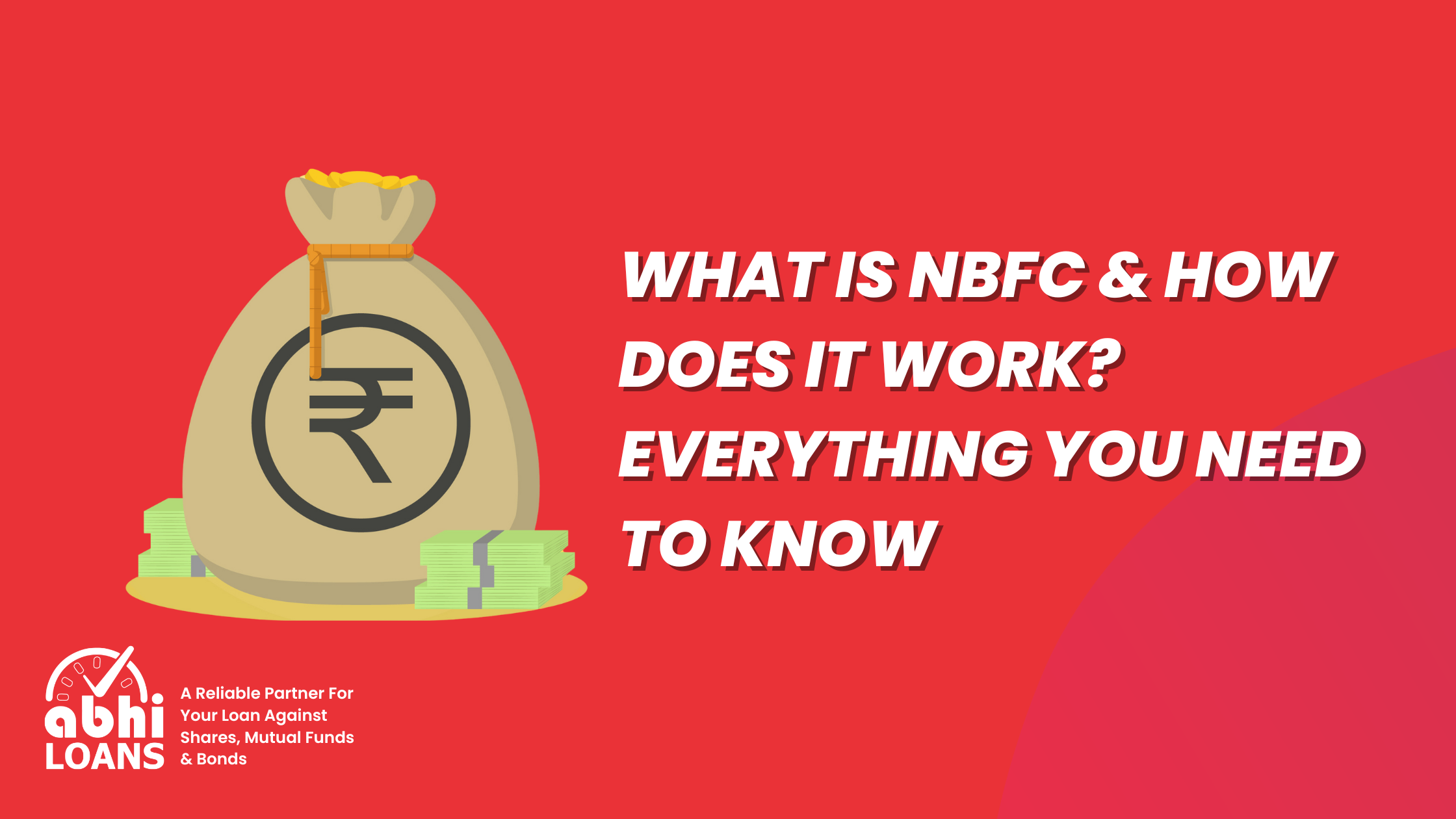What is NBFC & How Does it Work? Everything you need to know
The Indian financial sector is a critical pillar supporting economic growth and development. While banks have traditionally dominated this domain, Non-Banking Financial Companies (NBFCs) have gained prominence due to their innovative financial solutions and specialized services.
The NBFC full form is Non-Banking Financial Company. These institutions have gained popularity by addressing credit needs that are often underserved by traditional banks, especially in rural, semi-urban, and niche market segments. In this article, we will explore what an NBFC is, its features, types, and how it works.
What is an NBFC?
A Non-Banking Financial Company (NBFC) is a financial institution that offers banking services without holding a banking license. Unlike traditional banks, NBFCs cannot accept demand deposits—funds that can be withdrawn on demand, such as current and savings account deposits.
However, they provide a range of financial services, including lending, investment, asset management, and more. NBFCs in India are regulated by the Reserve Bank of India (RBI) under the Reserve Bank of India Act, 1934. They play a pivotal role in bridging the credit gap in areas where traditional banks have limited reach, such as rural and semi-urban regions.
Key Features of NBFCs
- No Demand Deposits: NBFCs cannot accept savings or current account deposits.
- Regulated by RBI: They adhere to specific regulations set by the RBI to ensure transparency and stability.
- Wide Range of Services: They offer loans, credit facilities, asset financing, wealth management, and insurance, among other services.
- Focus on Niche Markets: NBFCs often specialize in catering to specific customer segments, such as small businesses, rural populations, and low-income groups.
- Customer-Centric Approach: Many NBFCs provide personalized solutions to meet individual needs, making it easier for underserved communities to access credit.
Types of NBFCs
NBFCs can be categorized based on their primary activities and services. Here are some common types:
1. Asset Finance Companies (AFCs)
These NBFCs specialize in financing assets such as machinery, automobiles, and equipment. They are popular among businesses requiring heavy machinery and individuals seeking auto loans.
2. Investment Companies
Investment NBFCs manage securities, shares, and bonds for individuals and institutions, acting as wealth managers.
3. Loan Companies
Loan NBFCs provide various types of loans, including personal loans, business loans, and microloans, to individuals and entities.
4. Infrastructure Finance Companies (IFCs)
These NBFCs finance large-scale infrastructure projects like roads, bridges, and power plants. They are vital contributors to nation-building.
5. Microfinance Institutions (MFIs)
MFIs offer small loans without collateral to low-income groups, aiming to empower underserved communities through financial inclusion.
6. Housing Finance Companies
Housing NBFCs specialize in providing home loans and financing real estate development projects.
7. NBFC-Factors
These companies specialize in providing factoring services, which involve managing business accounts receivables.
How Does an NBFC Work?
NBFCs act as mediators in the financial system, collecting money from investors and using it to provide loans, make investments, or carry out other financial activities. Here’s a simplified overview of their working mechanism:
- Fundraising: NBFCs raise capital through debentures, bonds, and fixed deposits.
- Lending: They lend this capital to individuals or businesses for personal, commercial, or infrastructural purposes.
- Revenue Generation: NBFCs earn revenue primarily through interest on loans and fees for services.
- Risk Management: They use risk assessment strategies and due diligence to minimize defaults and maintain financial stability.
Regulatory Framework for NBFCs
The Reserve Bank of India sets strict policies to govern the operations of NBFCs. These include:
- Registration Requirements: All NBFCs must register with the Reserve Bank of India.
- Capital Adequacy Norms: They must maintain a minimum Capital to Risk-Weighted Assets Ratio (CRAR).
- Fair Practices Code: Ensures transparency and fairness in transactions with customers.
- Asset Classification and Provisioning Norms: Mandates proper classification of assets and provisioning for bad loans.
Importance of NBFCs in India
- Financial Inclusion: NBFCs cater to parts of society often overlooked by traditional banks, such as rural populations and small businesses.
- Economic Growth: By providing credit for infrastructure, micro-enterprises, and startups, NBFCs fuel economic development.
- Custom Solutions: They offer flexible and customized financial products to meet various customer needs.
- Job Creation: NBFCs generate employment opportunities, particularly in tier 2 and tier 3 cities.
Challenges Faced by NBFCs
While NBFCs play a crucial role in extending financial services, they also face several challenges:
- Liquidity Crunch: Limited access to immediate funding can hamper their operations.
- Rising NPAs: Non-performing assets (NPAs) pose a significant threat to profitability.
- Market Competition: With the rise of digital lending platforms and fintech, NBFCs face rigid competition.
Emerging Trends in the NBFC Sector
- Digital Transformation: Adoption of technology to improve customer experience and streamline processes.
- Partnerships with Fintech: Collaborations to offer innovative and tech-driven financial solutions.
- Government Support: Initiatives like credit guarantees and policy reforms are promoting the growth of NBFCs.
How to Choose an NBFC for Your Financial Needs
If you’re thinking of availing services from an NBFC, here are some tips:
- Check Reputation: Look for a well-established NBFC with a strong track record.
- Compare Interest Rates: Evaluate interest rates and fees across different NBFCs.
- Terms and Conditions: Read the terms and conditions carefully to avoid any additional charges and hidden fees.
- Verify RBI Registration: Ensure the NBFC is registered and regulated by the RBI.
Conclusion
Non-Banking Financial Companies (NBFCs) have changed India’s economic landscape by offering modern and widely accessible solutions. With their customer-centric approach, they have bridged the gap between traditional banking and modern financial needs. However, as a customer, it’s essential to choose an NBFC wisely by considering factors like reputation, services, and compliance.
NBFCs continue to evolve, leveraging technology and focusing on sustainability to stay relevant in a competitive market. Whether you are a business owner, an aspiring homeowner, or a student seeking an education loan, NBFCs provide tailored solutions to meet diverse financial goals.

